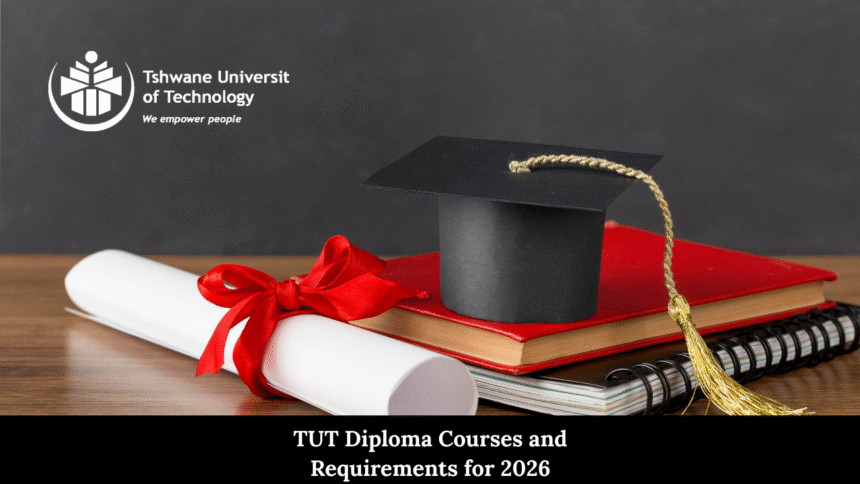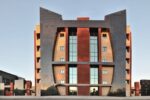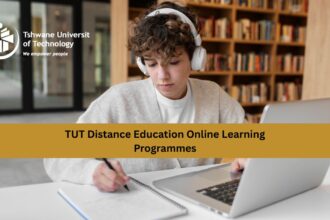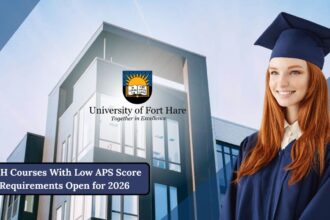TUT Diploma Courses and Requirements for 2026. Are you planning to study at Tshwane University of Technology (TUT) in 2026? With South Africa’s growing demand for technical and vocational education, TUT diploma courses provide an excellent opportunity for students seeking practical, career-oriented qualifications. In this guide, we break down the TUT diploma courses and requirements 2026, offering detailed insights into entry criteria, APS scores, and subject combinations for various fields of study.
Why Choose a Diploma at TUT?
Tshwane University of Technology is one of South Africa’s leading institutions offering a wide range of diploma qualifications. These courses are designed for students who want to gain hands-on experience and enter the job market quickly. A diploma from TUT is recognised across industries such as engineering, finance, policing, and management.
General Entry Requirements for TUT Diplomas
Before applying, it’s crucial to understand the minimum entry requirements for TUT diploma courses. While each programme has specific conditions, the general eligibility is as follows:
- A National Senior Certificate (NSC) with a diploma or bachelor’s endorsement.
- A minimum APS (Admission Point Score) of 20 to 24, depending on the course.
- Achievement of at least:
- Level 4 in English (Home Language or First Additional Language)
- Level 4 in Mathematics or Technical Mathematics, or Mathematical Literacy (depending on the course)
- Some programmes may require Life Sciences or Physical Sciences as an additional subject.
Note: For postgraduate diplomas, a relevant Bachelor’s Degree or NQF Level 7 qualification is required.
Course-Specific Requirements for Popular Diploma Programmes
Here’s a breakdown of some of the most popular TUT diploma programmes and their unique entry requirements for 2026:
Diploma in Human Resources Management
- APS Requirement: 24
- Subjects:
- English: Level 4
- Mathematics/Technical Mathematics/Mathematical Literacy: Level 3
This course is ideal for students interested in organisational behaviour, recruitment, labour relations, and talent management.
Diploma in Management Services
- APS Requirement: 20
- Subjects:
- English: Level 3
- Mathematics/Technical Mathematics: Level 3
- Mathematical Literacy: Level 5
It focuses on operational efficiency, business productivity, and resource optimisation, equipping students with management tools and skills.
Diploma in Policing
- APS Requirement: 20
- Subjects:
- English: Level 3
- Mathematics/Technical Mathematics/Mathematical Literacy: Level 3
A popular course for aspiring police officers, detectives, and law enforcement professionals across South Africa.
Diploma in Kinesiology and Coaching Science
- APS Requirement: 24
- Subjects: Mathematics or Technical Mathematics
The course covers movement science, athletic coaching, physical education, and wellness planning—perfect for future sports and fitness professionals.
Diploma in Internal Auditing
- APS Requirement: 24
- Subjects: Mathematical Literacy
Internal Auditing is a core function in business assurance, making this course highly valuable for finance professionals looking to specialise in compliance and risk assessment.
Diploma in Financial Planning
- APS Requirement: 24
- Subjects: Mathematical Literacy
Ideal for students looking to enter the financial advisory sector, including insurance, wealth management, and investment planning.
Other Programmes at TUT
TUT also offers diploma programmes in the fields of:
- Analytical Chemistry: Requires strong Mathematics and Physical Science background.
- Food Technology: Often requires Life Sciences and Physical Sciences.
- Engineering Fields: Typically have higher APS requirements, with a strong focus on Mathematics and Science.
Always consult the latest TUT Prospectus or website to confirm if your subject combination meets the programme’s criteria.
Understanding the APS System
The Admission Point Score (APS) is a critical part of university applications in South Africa. It is calculated based on your NSC subject results. Each level of achievement earns a corresponding point, with Level 7 (80–100%) scoring the highest
| Percentage | Achievement Level | APS Points |
|---|---|---|
| 80–100% | Level 7 | 7 |
| 70–79% | Level 6 | 6 |
| 60–69% | Level 5 | 5 |
| 50–59% | Level 4 | 4 |
| 40–49% | Level 3 | 3 |
| 30–39% | Level 2 | 2 |
| 0–29% | Level 1 | 1 |
To meet the TUT diploma courses and requirements 2026, you must ensure your combined APS matches or exceeds the programme’s minimum.
Postgraduate Diploma Entry Criteria
For students who already hold a diploma or degree and wish to further their studies, TUT offers a range of Postgraduate Diplomas. These require:
- A Bachelor’s Degree or equivalent (NQF Level 7)
- Programme-specific requirements that may include work experience or prior specialisation
Examples include diplomas in Education, Engineering Management, and Project Management.
Application Tips for 2026
When applying for TUT diploma programmes in 2026, keep the following in mind:
- Start early: Online applications usually open mid-year for the next academic session.
- Prepare all documents: Certified ID, matric results, and other qualifications.
- Apply for financial aid: Check for NSFAS and internal bursaries.
- Review multiple programmes: If your APS doesn’t meet one requirement, consider other suitable options.
Conclusion
Choosing the right diploma course at TUT is an important decision that can shape your career. Whether you’re aiming for a role in human resources, policing, finance, or coaching, TUT diploma courses and requirements 2026 provide diverse and accessible entry points for South African learners.










